The Global Human Milk Research Consortium exists to promote excellence in breastmilk and breastfeeding research with interdisciplinary collaborations that challenge the science, push the boundaries of knowledge and contribute meaningfully to the UN Sustainable Development Goals and WHO Global Targets.







Vision
To improve every life through interdisciplinary research on breastfeeding and human milk
Mission
Breastfeeding is one of the most impactful, cost-effective ways to save and improve the lives of children everywhere, providing lifelong health benefits for infants and their mothers.
Breastmilk and breastfeeding are not only the foundation of a child’s healthy development, but they are also the basis of a country’s development – ending preventable child deaths, improving educational achievements, and boosting productivity.
The Global Human Milk Research Consortium (GHMRC) consists of five independent research centers, based at renowned universities, and endowed by the Family Larsson-Rosenquist Foundation. The centers focus on complementary research topics that can advance the global understanding of breastfeeding and breastmilk. Each center’s research vision highlights important components of health and development that contribute to reaching the UN Sustainable Development Goals (SDGs) – immunology, neurodevelopment, endocrinology of lactation, microbiome and human oligosaccharides, and behavioral economics.
Beyond their individual research areas, the centers are collaborating on interdisciplinary research projects capable of bridging traditional divides between disciplines. As a cornerstone of that interdisciplinary approach, the GHMRC has launched a multi-year fellowship program. Financed by the Family Larsson-Rosenquist Foundation, it offers two, 2-year postdoctoral grants annually.
The GHMRC believes this is how it can contribute to the quest to reach the SDGs and WHO Global Targets 2025.
Three interdisciplinary projects focused on improving outcomes for small vulnerable newborns and breastfeeding mothers are launching in 2025.
Each involves early career researchers. Backed by fresh energy and ideas, and the GHMRC’s sustainable funding model, this cross-center work is poised for impactful discoveries and implementation.
The Family Larsson-Rosenquist Foundation Fellowship Program funds postdoctoral positions located at one of five independent research centers in Australia, England, Switzerland or the United States. Each fellowship grant will focus on a different interdisciplinary project, envisaged as the seed of a longer-term, innovative research exploration in the field. The fellowships offer postdoctoral students the unique opportunity to kick-start their own specialty focus and make a real impact on breastmilk and breastfeeding research, while joining a collective that can shape the future.
We look at the Fellowship Program as an incubator of sorts – from helping leaders advance their careers to nudging mid-career researchers to achieve their full scientific potential, or nurturing future brainpower to impact the world.
By joining the Fellowship Program, you will have the opportunity to co-develop projects with highly experienced principal investigators. While you will shape the initial concept and outline specific aims together, you will lead the project independently with your own ideas. Moreover, there is a possibility to dive into a project for more than two years; postdocs can be extended up to five years.
Additional benefits
You will obtain highly individualized leadership training. This will equip you with strategies for developing practical leadership skills, conflict management techniques and influence as you take on more responsibility. To put your new leadership skillset to use, you can work for the Family Larsson-Rosenquist Foundation for couple of weeks during the program. The experience can help you gain relevant business skills and confidence as you are translating knowledge into practice with real time impact.
Postdoctoral researchers, the respective principal investigators and other experts in the field will also have a chance to meet face to face during an annual conference focused on breastmilk and breastfeeding research.
When you join the Fellowship Program, you will automatically join an Alumni Club. The AC can help you build the foundation for a lifelong, professional network. In the AC, you will take part in networking opportunities that connect you with current students and alumni, thus establishing a supportive community for your career journey.
Are you interested?
Eligible candidates for the Fellowship Program:
After an initial selection, short-listed candidates will be invited for interviews via video conference discussions with a panel of experts including the principal investigators, other GHMRC professors and the funder. Candidates can expect a lively conversation about the project, including how the topic can be developed in the future.
During interviews candidates can expect the following in an open discussion:
Candidates will be selected based on their academic credentials and leadership potential.
Breastmilk nourishes infants completely and safely. It promotes healthy lives while contributing to food security and sustainable agriculture and consumption patterns, helping to offset poverty. Breastmilk and breastfeeding prevent child and maternal diseases in the immediate and long terms – further reducing poverty advancing gender and national equality.
Breastfeeding is a central part of the 2030 Agenda for Sustainable Development and is linked to many of the Sustainable Development Goals (SDGs). Improvements in breastfeeding would help achieve the targets for health, food security, education, equity, development, and the environment.
Breastfeeding is a critical key in achieving SDG 2 and SDG 3, which include ending hunger, improving nutrition, and promoting health and wellbeing. Breastfeeding is an essential part of a healthy early childhood, supporting both physical and cognitive development, helping to drive the achievement of SDG 4. Breastfeeding is also linked to critical equality issues including birth spacing and workplace rights, contributing to SDG 5. These improved outcomes in health and learning in turn support the achievement of other goals, including SDGs 1, 8 and 10, which concern ending poverty, promoting economic growth, and reducing inequalities. Breastmilk is created and consumed with a minimal ecological footprint, supporting SDG 12.
Breastfeeding is one of the keys to reducing under-five mortality. Increasing rates of breastfeeding to target levels could save the lives of infants 6 months old and younger.
Breastfeeding also plays a crucial role in achieving WHO Global Targets 2025. Improvement in breastfeeding would not only help to achieve the Target 5: Breastfeeding, but also Target 1: Stunting, Target 4: Childhood overweight and Target 6: Wasting.
Related UN Sustainable Development Goals
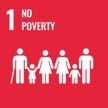
End poverty in all its forms everywhere.
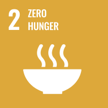
End hunger, achieve food security and improved nutrition and promote sustainable agriculture.
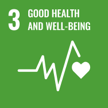
Ensure healthy lives and promote well-being for all at all ages.
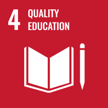
Ensure inclusive and equitable quality education and promote lifelong learning opportunities for all.
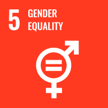
Achieve gender equality and empower all women and girls.
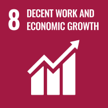
Promote sustained, inclusive and sustainable economic growth, full and productive employment and decent work for all.
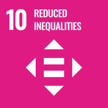
Reduce inequality within and among countries.
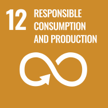
Ensure sustainable consumption and production patterns.
Related WHO Global Targets 2025

Stunting: 40% reduction in the number of children under-5 who are stunted

Childhood overweight: No increase in childhood overweight

Breastfeeding: Increase the rate of exclusive breastfeeding in the first 6 months up to at least 50%

Wasting: Reduce and maintain childhood wasting to less than 5%